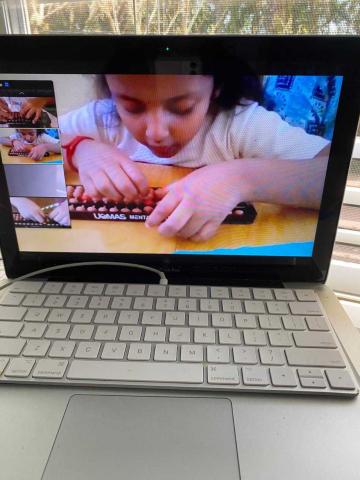5 Myths About Abacus Mental Math You Should Stop Believing
Abacus mental math has been a game-changer for many children around the globe, yet it is often misunderstood. Misconceptions about this ancient yet effective learning tool prevent parents from exploring its full potential for their kids. In this blog, we’ll debunk five of the most common myths about abacus mental math and shed light on why it’s worth considering for your child.
Myth 1: Abacus Mental Math is Outdated
It’s easy to think of the abacus as an old-fashioned tool, but this couldn’t be further from the truth.
The abacus may have originated thousands of years ago, but its methods are anything but outdated. Today, it has evolved into a dynamic learning system that sharpens mental math skills. Children using the abacus often demonstrate faster and more accurate calculations than their peers, showcasing how relevant it remains in the digital age.
In fact, abacus mental math does more than just improve arithmetic. It enhances memory, concentration, and problem-solving abilities. These cognitive skills are essential in today’s competitive world, proving the abacus is more relevant now than ever before.
Abacus schools combine traditional methods with modern teaching approaches to ensure students grasp its benefits in a way that feels fresh and engaging. Whether in classrooms or through online platforms, abacus learning continues to thrive.
Myth 2: Only Gifted Kids Can Benefit from Abacus Mental Math
A common misconception is that abacus mental math is suitable only for exceptionally bright students.
In reality, the abacus is a tool designed for every child, regardless of their initial math proficiency. It simplifies complex concepts into manageable steps, making math approachable and fun for all learners. Even children who struggle with basic arithmetic often see remarkable improvements after joining an abacus program.
Abacus schools are inclusive environments that cater to various learning >
Learning abacus mental math builds resilience. Kids learn that practice and patience lead to progress, which is a valuable lesson beyond mathematics.
Myth 3: Abacus Mental Math is Just About Numbers
Many people assume that abacus training is solely focused on numerical calculations.
While numbers are a big part of abacus learning, the benefits extend far beyond math. The process trains both the left and right hemispheres of the brain, enhancing creativity, logical thinking, and visualization. This dual-brain activation sets abacus mental math apart from other learning methods.
The abacus instills a strong work ethic in children. They develop discipline, focus, and the ability to set and achieve goals. These skills are invaluable in academics and life.
Parents often notice that their children show improvements in subjects like science, reading, and even art after mastering abacus techniques. It’s proof that this isn’t just about numbers—it’s about holistic development.
Myth 4: Learning Abacus Mental Math is Boring
Some assume that sitting in an abacus school or using the tool repeatedly is tedious for kids.
Contrary to this belief, abacus learning is interactive and fun. Classes are designed to engage children with hands-on activities, games, and challenges. By making math enjoyable, children develop a love for learning that can last a lifetime.
Mental math techniques taught through the abacus make learning exciting. Kids take pride in solving problems quickly and accurately, turning what might feel like a chore into an achievement.
Abacus schools also emphasize group activities and competitions. These foster a sense of camaraderie and healthy competition among students, adding a social aspect to the learning process.
Myth 5: Mental Math Skills are Irrelevant in the Digital Age
With calculators and smartphones readily available, some question the need for mental math at all.
However, relying solely on technology can limit a child’s cognitive growth. Abacus mental math builds a strong foundation in basic arithmetic, which is essential for advanced learning. It also trains kids to think quickly and independently, a skill that no device can replace.
Mental math develops confidence, allowing children to solve problems without external aids. This skill is particularly useful in real-life scenarios, like budgeting, shopping, or measuring.
Abacus programs prepare students for the future by enhancing their ability to adapt and learn. It’s a timeless tool that complements, rather than competes with, digital advancements.
Why You Should Embrace Abacus Mental Math
The myths surrounding abacus mental math often stem from misunderstanding or outdated information. By debunking these misconceptions, it’s clear that the abacus is a powerful tool for learning and development.
Parents should consider enrolling their kids in an abacus school or program not just to improve their math skills but to provide them with lifelong cognitive benefits. From sharpening memory to boosting confidence, the advantages are undeniable.
Conclusion:
At UCMAS USA, we believe every child has the potential to excel. As a global leader in abacus mental math education, we’ve helped thousands of students develop exceptional cognitive and mathematical skills. Our programs combine traditional abacus methods with modern teaching techniques, creating a fun and stimulating learning environment for kids aged 4–13.
Whether you’re looking for an abacus school nearby or exploring online classes, UCMAS USA offers flexible options to suit your needs. Give your child the gift of confidence, focus, and a lifelong love for learning.
Ready to get started? Enroll your child in UCMAS USA today and watch them thrive!









